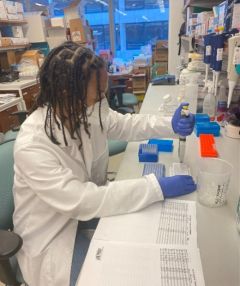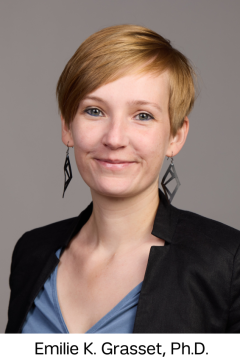This article was originally posted in the WCM newsroom.
A team led by researchers at Weill Cornell Medicine, the University of Wisconsin-Madison; Scripps Research and the University of Chicago has identified an antibody that appears to block infection by all dominant variants of the virus that causes COVID-19, including Omicron, the most recent. Their discovery could lead to more potent vaccines and new antibody-based treatments.
In a study published March 6 in the Journal of Clinical Investigation, senior author Dr. Patrick Wilson, the Anne E. Dyson Professor of Pediatric Research and a member of the Gale and Ira Drukier Institute for Children’s Health at Weill Cornell Medicine, and his colleagues tested antibodies derived from patient blood samples against successive versions of the virus that emerged during the pandemic. One of these proteins, dubbed S728-1157, proved highly effective at neutralizing not only older variants but also seven subtypes of Omicron.
“The pandemic is over, but the virus is around for the long haul. If not well controlled, it could cause annual epidemics,” said Dr. Wilson. “This antibody and the insight it provides could help us avoid yearly surges of COVID-19 or if there is another coronavirus pandemic.”



